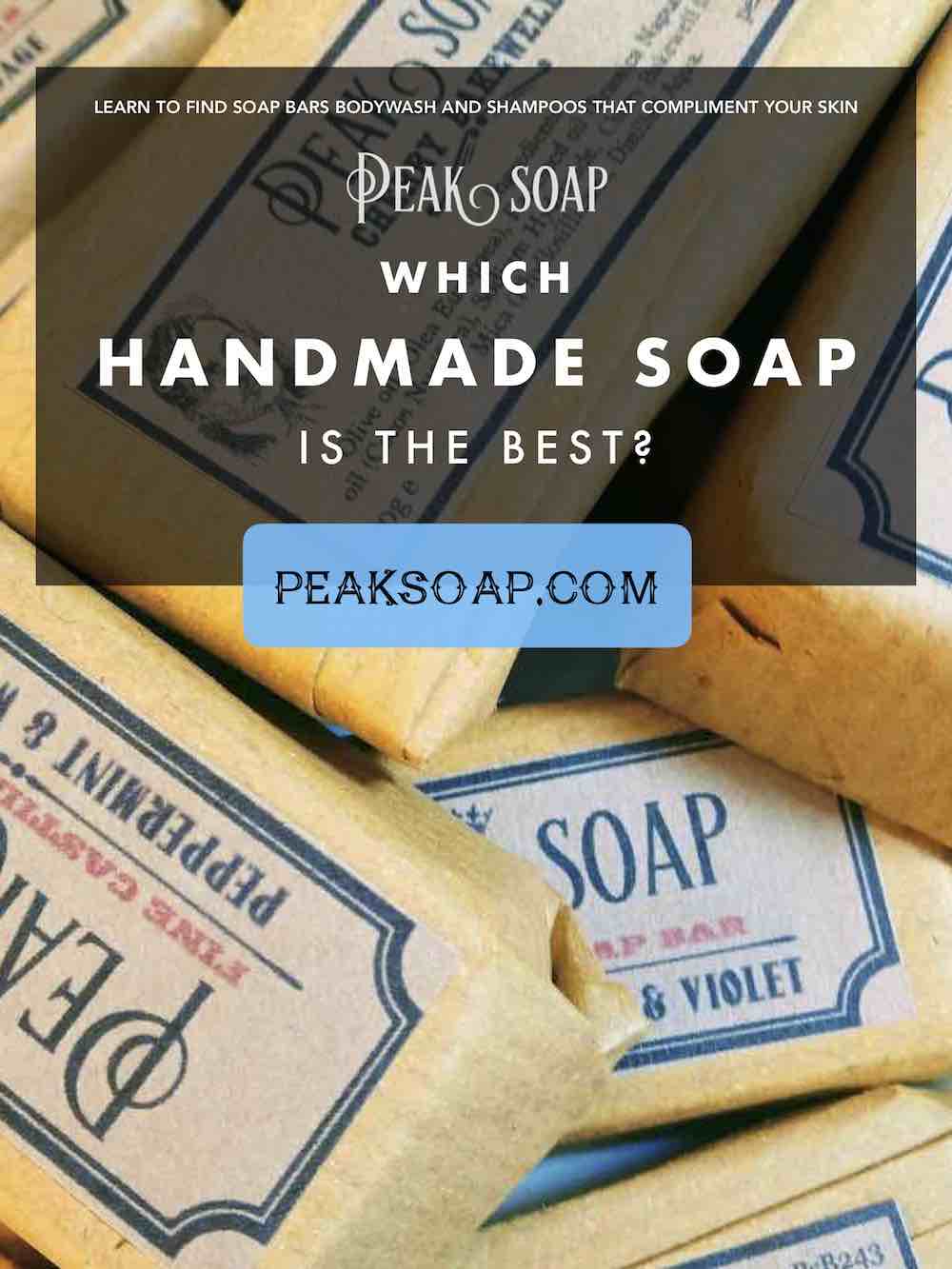|
Which handmade soap is the best? There are a lot of handmade soap companies and thus a lot of choice. However, which one is the best is a difficult question. Which Handmade Soap Is The Best? | PEAK SOAPBy Michael Holloway MSc, BSc - Updated 10.05.22 Which handmade soap is the best? There are a lot of handmade soap companies in the UK and thus a lot of choice. Deciding which one is the best is a difficult question. There are a number of criteria by which you could judge handmade soap. This list is somewhat subjective but here is our advice. 1. Value For MoneyHandmade soap comes in a variety of prices. The average price for a 100g soap bar in the UK is currently about £3.50. This varies depending on where you buy it from of course. If you buy your soap bar from a gift shop as many people do, then it may be slightly higher. If you buy directly from the manufacturer or artisan, it will probably be cheaper but the same quality. Unfortunately for many retail outlets, it is cheaper to buy online. Retail simply cannot compete with online sellers, especially those such as Amazon etc. Sad but true. Even small artisan sellers on Etsy can outcompete for price with any gift shop, garden centre, tourist shop or trendy cafe. This is good for us the consumer however, so take advantage! 2. IngredientsThe ingredients that go into making the handmade soap bar are of course another variable. The more expensive the ingredients, the more it will likely cost. For example, the cheapest type of soap to make (apart from supermarket SYNDET soap) is gylcerin soap. This can be bought straight off the shelf from companies such as Stevensons. Melt and pour glycerin soap is not much to write home about and it contains poor quality ingredients. Good quality oils to look out for include olive oil, coconut oil, rapeseed oil, sweet almond oil basically any real vegetable oil. Only a vegetable oil soap can legally be called a soap bar so watch out for this too. If its melt and pour with some colour and essential oil in, its still legally a synthetic detergent. 3. The Manufacturing ProcessThe way the handmade soap bar has been made can make a significant difference. Making handmade soap is effectively chemisty. Now chemistry as im sure you are aware is a hard subject to master, thats why you generally need a degree in it. There are plenty of ways you can do damage by not knowing what you are doing. For example, lye is sodium hydroxide. This is a very powerful alkali and can do a lot of damage if you dont know what it is and how to treat it. Always make sure you know that the maker has significant experience and has public liability insurance. Sounds lame I know but if your child eats that wonderful looking soap you bought and ends up in hospital, then what? If mary down the road made it in her kitchen, you may be in trouble so check the label first! Summing UpSo which handmade soap is the best? When considering this question its useful to use the 3 rules of thumb. 1. Is it value for money? 2. does it contain good quality ingredients? and 3. has it been made safely? To answer the first question, shop around and see what people are selling at. If the price is too high or too low this provides valuable signals. If its too high you could probably get a better deal unless you just LOVE it as it is! If its too low, exercise caution, the seller may not value that soap bar for a reason.
When assessing ingredients, check the labels to see what is in the soap bar. You should be seeing good quality, healthy, responsibly sourced oils and other ingredients. If not, put it down as its probably all sparkle and no substance. This point is intimately interleaved with the third rule of thumb. Is it made by someone who knows what they are doing? Ask questions and trust your instinct with this one. It does no harm to ask the shopkeeper about the product. After all, thats what they should be there for.
0 Comments
Your comment will be posted after it is approved.
Leave a Reply. |
Peak Soap
The Original Bakewell Soap Co.
Contact : [email protected] | Copyright 2023 © P e a k S o a p Ltd.
P e a k S o a p™ Ltd. is registered in the United Kingdom | Office : Diamond House, Water Street, Bakewell, DE45 1EW | Company No. 11684582
P e a k S o a p™ Ltd. is registered in the United Kingdom | Office : Diamond House, Water Street, Bakewell, DE45 1EW | Company No. 11684582

